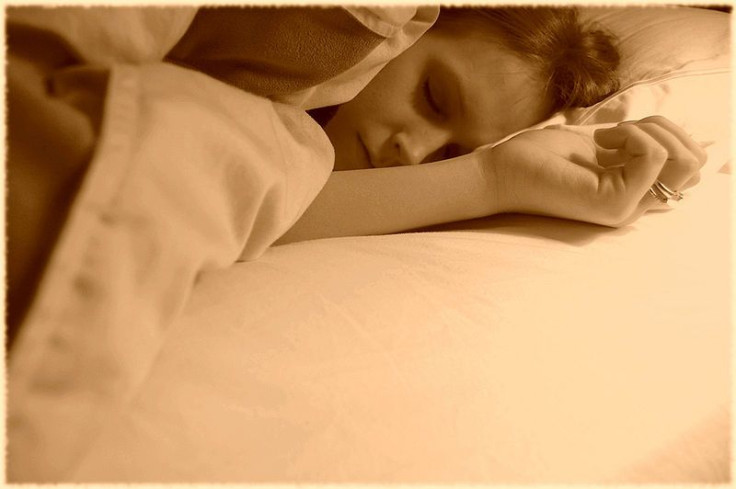CDC Sleeping Pill Report: Why Are Older, Educated Americans More Likely To Use Aids To Get Some Shut-Eye?

According to a report released Thursday by the Centers for Disease Control and Prevention (CDC), about four percent of U.S. adults over the age of 20 — 8.6 million Americans — use prescription sleep aids. Of these individuals, prescription sleep aid use is higher in those who are older and more educated.
“They told us they had difficulty getting to sleep, or they were waking up and couldn’t get back to sleep,” said CDC researcher Yinong Chong.
The report is the first governmental survey of its kind. Data from a National Health and Nutrition Examination Survey taken from 17,000 people between 2005 and 2010 shows that there are sociodemographic differences in use of prescription sleep aids based on age, sex, education level, and sleep disorder diagnosis.
White, female, and educated Americans aged 50 or older are most likely to resort to using prescription sleeping pills. Over 16 percent of adults who were diagnosed with a sleeping disorder reported using sleep aids. And 13 percent of adults who told their doctors they had trouble sleeping, but were never diagnosed with a disorder, reported using sleep aids. In general, Americans are dealing with sleep issues at higher rates than ever before.
‘‘Sleep disorders overall are more prevalent than what they were,’’ said Dr. Ana Krieger, medical director of New York’s Weill Cornell Center for Sleep Medicine.
But Chong said that the use of sleep aids can be attributed to any number of life circumstances. Among people over the age of 50, work and family stress are probably sources of sleep interruption.
"It gives the picture of a sandwiched group who has family, not only children but also probably elderly parents but still you're likely to be in the workforce, so you get squeezed at both ends in terms of family responsibility and job responsibility," said Chong.
The report shines light on how a good night’s sleep is becoming harder and harder to get. In all, between 50 million and 70 million Americans suffer from sleep disorders or sleep deprivation. According to the CDC, more than one-third of American adults get less than seven hours of sleep each night.
But sleeping pill use comes with its own complications, according to LiveScience. People who use prescription sleep medications are at a higher risk of premature death and report higher rates of cancer. Sleep medications have also been found to lower people’s work performance and ability to focus the next day.
So, the healthiest approach for those who merely have trouble sleeping may be to take steps to improve sleep without relying on medication. Things like sticking to a sleep schedule, paying attention to what you eat and drink, creating a bedtime ritual, and including physical activity in your daily routine can all help you get better sleep.
“I think that the awareness of the importance of sleep is still growing,” said Dr. Roneil Malkani, assistant professor of neurology at Northwestern University's Feinberg School of Medicine. “It’s important for people to get an adequate amount of sleep and to sleep well. It’s an investment for their function the next day.”
Source: Chong Y, Fryar C. Prescription Sleep Aid Use Among Adults: United States, 2005-2010. NCHS Data Brief. 2013.
Published by Medicaldaily.com



























